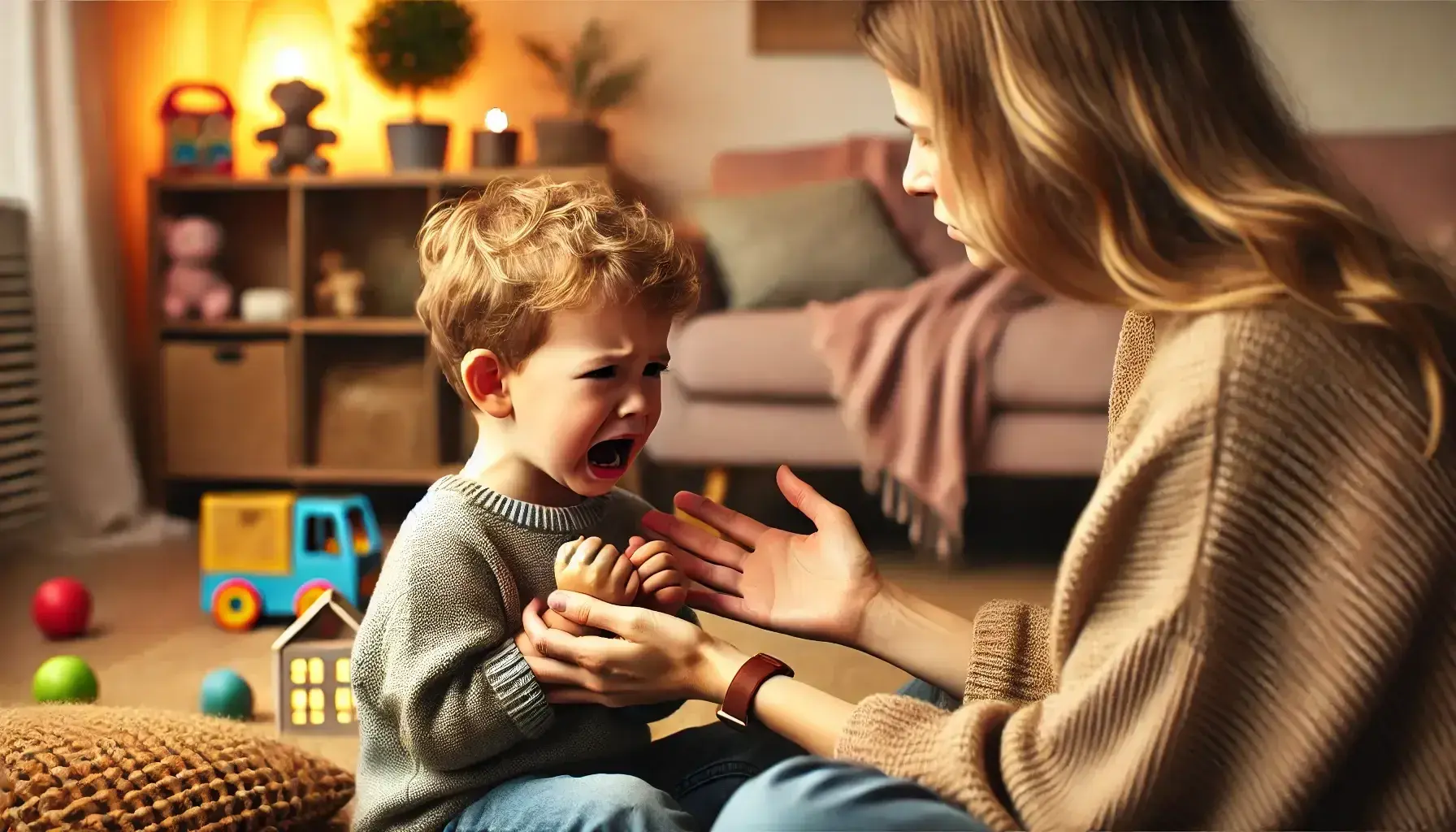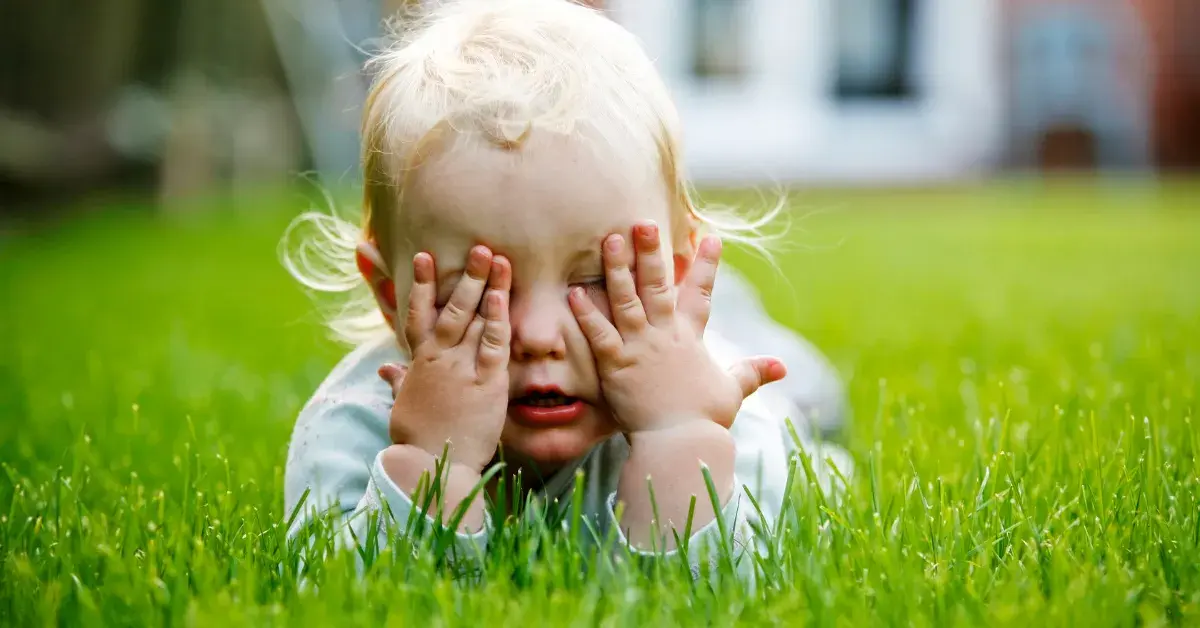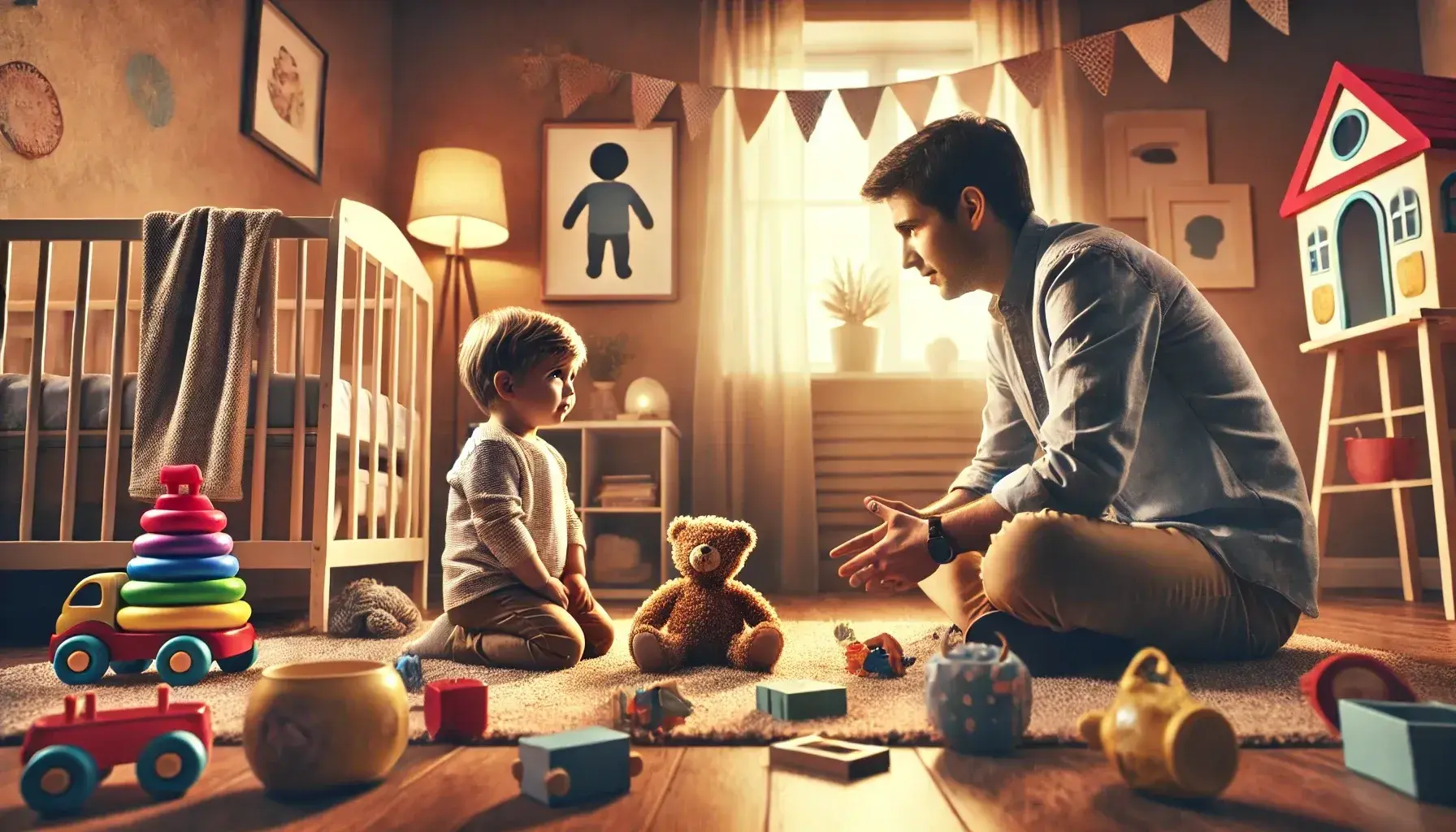Feeling Like Your 3-Year-Old's Tantrums Are Taking Over? Here's Why (and How to Help!)
 By
Mellow Editorial Team
·
3 minute read
By
Mellow Editorial Team
·
3 minute read

Ever feel like your once-sweet toddler has morphed into a mini-meltdown machine? You're not alone. Three-year-old tantrums can be intense, leaving parents feeling frustrated and confused.
Why the Drama?
It's not because your child is being naughty. The truth is, their brains are still under construction! Little kids haven't yet developed the skills to manage their emotions, so when things don't go their way, frustration explodes. Imagine wanting a cookie but not having the words to express it – a tantrum is a natural (though loud!) way to communicate their needs.
The Shift: From "Stop the Tantrum" to "Build Self-Control"
Here's the good news: you can help! Instead of focusing on stopping the tantrum itself, let's shift gears and focus on building your child's emotional regulation skills. This means teaching them healthy ways to calm down and express their feelings.
Be Their Calm in the Storm:
- Model calm: Kids learn by watching you. Take a deep breath, use a soothing voice, and show them how to manage their emotions in a healthy way.
- Warmth and connection: Snuggle them if they'll let you, or offer a gentle hand on their shoulder. Feeling secure helps them feel safe enough to calm down.
- Words matter: Don't label them as "tantrums." Use phrases like "feeling upset" or "frustrated." This helps them understand their emotions.
- Become a detective: Look for clues about what might be causing the tantrum. Are they tired, hungry, or overwhelmed? Addressing the root cause can help prevent future meltdowns.
Building Self-Regulation Superpowers
- Be a mirror: Help your child identify their emotions by saying things like, "I see you're feeling frustrated because you can't have another cookie."
- Choice Power: Offer simple choices when possible. This gives them a sense of control and can help prevent frustration. "Do you want to wear the red or blue shirt?"
- Distraction is your friend: Sometimes, a quick change of scenery can work wonders. Sing a song, read a book, or offer a new toy.
What to Avoid When Handling Tantrums
Navigating a toddler's tantrums can be challenging, but there are some common pitfalls parents should avoid.
- Avoid Reacting with Anger: Children learn emotional regulation by observing their parents. Responding to tantrums with anger teaches them to do the same. Instead, model calm behavior through deep breathing and mindfulness.
- Avoid Punishment: Discipline should be about teaching, not punishing. Harsh tactics can escalate tantrums and hinder a child's emotional development. Focus on positive reinforcement and teaching coping strategies.
- Avoid Ignoring Tantrums: Children need support during emotional outbursts. Ignoring them can intensify their distress and hinder their ability to self-soothe. Offer comfort and guidance while setting clear boundaries.
- Avoid Giving In: While it's tempting to end the tantrum quickly, giving in reinforces the behavior. Maintain consistency while remaining empathetic and supportive.
- Avoid Viewing Tantrums as a Temporary Phase: The "terrible twos" are not just a phase to endure. How parents respond significantly impacts a child's long-term development. Early intervention and positive guidance can prevent future behavioral issues.
Remember:
You're not alone. Every parent deals with tantrums. There's no shame in reaching out for support from a pediatrician or therapist if you need it.It gets better. With patience and these helpful tips, your child will develop the skills they need to manage their emotions and those tantrums will become a distant memory.
References
-
Graziano PA, Calkins SD, Keane SP. Sustained attention development during the toddlerhood to preschool period: associations with toddlers’ emotion regulation strategies and maternal behaviour. Inf Child Develop. Published online March 31, 2011:389-408. doi:https://doi.org/10.1002/icd.731
-
Morris AS, Silk JS, Steinberg L, Myers SS, Robinson LR. The Role of the Family Context in the Development of Emotion Regulation. Social Development. Published online May 2007:361-388. doi:https://doi.org/10.1111/j.1467-9507.2007.00389.x
-
Bor W, Sanders MR. Correlates of Self-Reported Coercive Parenting of Preschool-Aged Children at High Risk for the Development of Conduct Problems. Aust N Z J Psychiatry. Published online September 2004:738-745. doi:https://doi.org/10.1080/j.1440-1614.2004.01452.x
-
Morris AS, Silk JS, Steinberg L, Myers SS, Robinson LR. The Role of the Family Context in the Development of Emotion Regulation. Social Development. Published online May 2007:361-388. doi:https://doi.org/10.1111/j.1467-9507.2007.00389.x
-
Patterson GR. The early development of coercive family process. In: Antisocial Behavior in Children and Adolescents: A Developmental Analysis and Model for Intervention. American Psychological Association; :25-44. doi:https://doi.org/10.1037/10468-002
-
Chang L, Schwartz D, Dodge KA, McBride-Chang C. Harsh Parenting in Relation to Child Emotion Regulation and Aggression. Journal of Family Psychology. Published online 2003:598-606. doi:https://doi.org/10.1037/0893-3200.17.4.598
Feel free to contact us anytime - we're here to help! 💕


